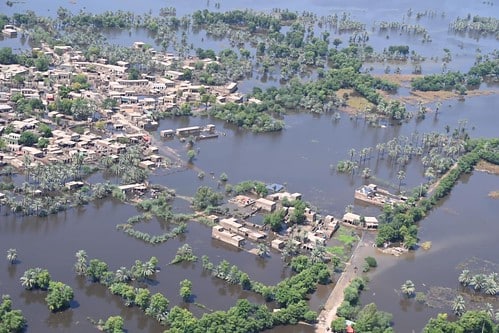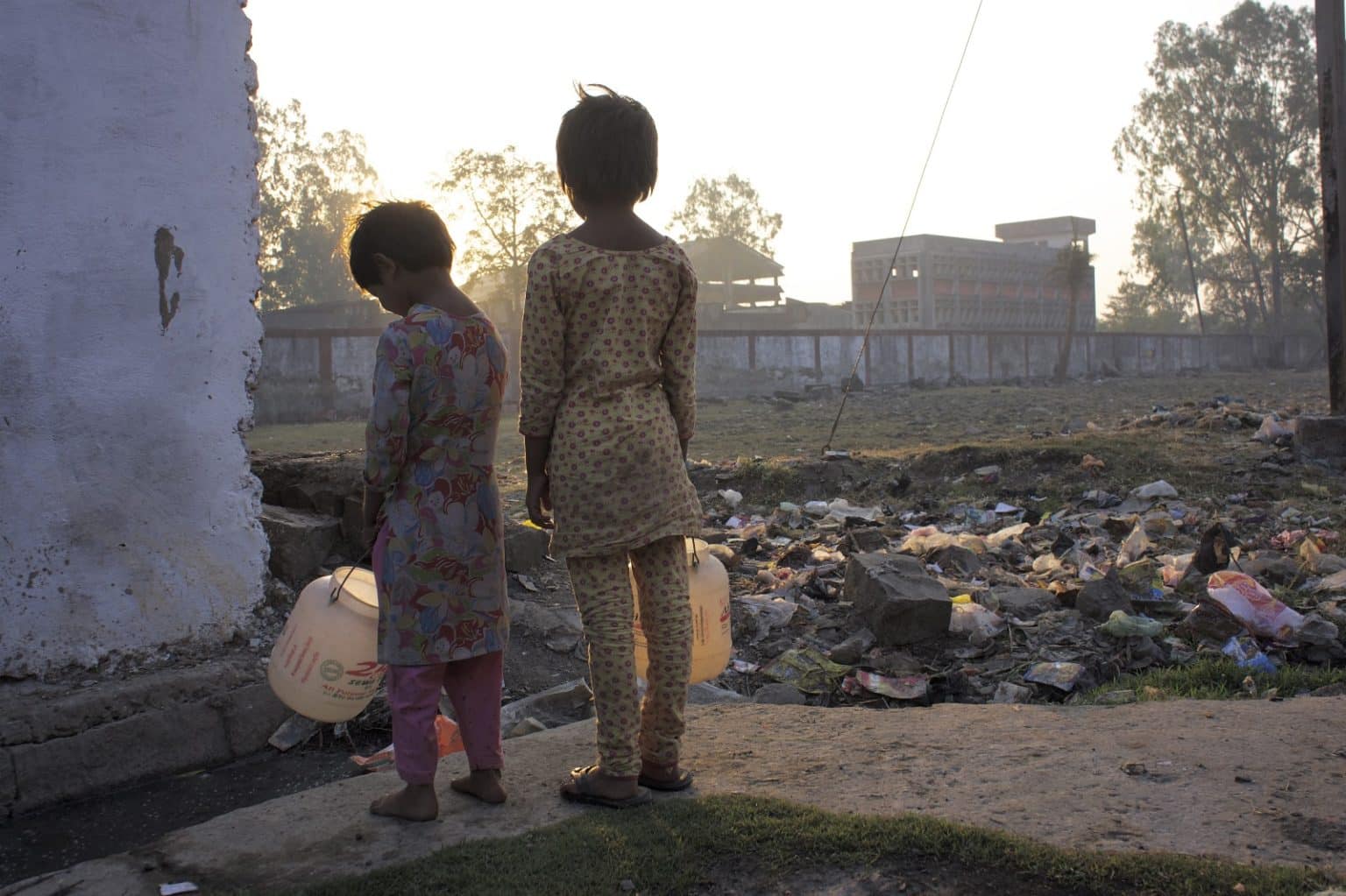After weeks of record high temperatures and extreme drought in spring, Pakistan was ravaged by months of extreme rainfall during the monsoon season from mid-June. In some regions five times as much rain fallen as 'normal' for this time of year. A third of the country is under water, the floods have affected at least 1,500 people, including at least 500 children, took their lives. Scientists argue that there is in all likelihood a link between climate change and the extreme rainfall in recent months.
Although the exact impact is still difficult to estimate, it is clear that the infrastructure has been severely damaged. There is also dreaded for outbreaks of disease and infection and there are serious concerns about food security. Food prices are expected to rise extremely as fields have flooded and nearly a million animals have died. The floods make the most vulnerable Pakistanis - including people with disabilities (polio is common in Pakistan), farmers, people living in slums, migrants, women and children - even more vulnerable.
The Pakistani government has been blamed for not doing enough itself to be prepared for the floods. But, even if precautions could have made a (small) difference, it is downright unfair to blame Pakistan alone. From the corner of academia, civil society, and Pakistani government circles, the global North is pointed and looked at. They are accused of being responsible for climate change but not taking responsibility for its consequences. Pakistan itself contributes only 0.4 per cent to total global emissions; the Netherlands 10 times as much. The overall global North accounts for 92 per cent of historical CO2 emissions, compared to 8 per cent of the global South. Therefore, it is not surprising that Pakistani Prime Minister Sharif places the responsibility entirely on Western countries. In the West, however, little attention has been paid to the floods; all eyes have been on the Russian invasion of Ukraine for months, and the death of Queen Elizabeth also received much more attention.
The polluter pays (not)
"The world's poorest countries and communities are paying the price of a climate crisis they are least responsible for" -. Oxfam.
As the damage in the tens of billions runs, Pakistan is heavily dependent on the international community for emergency aid to the 33 million people affected and for rebuilding the country. So far, the European Commission has only €1.8 million transferred to Pakistan. The United Nations plans to raise €160 million. That is far from covering the damage. All the more relevant is the UN climate summit (COP27), which begins 6 November in Egypt. Indeed, many hopes are focused on the so-called loss and damage-discussion that is on the agenda. Under the 'polluter pays' principle, the Netherlands and other countries of the global North have an obligation to support Pakistan to recover from the misery it has fallen into as a result of climate change. This means that in addition to doing enough itself to combat climate change, the Netherlands must also adequately contribute to international climate finance to compensate developing countries affected by climate change.
Financial compensation for Pakistan is important not only because it has a small share in causing climate change, but also because it is in the top 10 state of countries hardest hit by the effects of climate change, and thus by the actions of the global North. By the way, all the countries in that top 10 are countries from the global South. That is why it is so important for countries like the Netherlands to adopt fair policies. That goal is unfortunately still a long way off now; from recent research from the Netherlands Environmental Assessment Agency shows that the Netherlands is not even meeting its own climate targets. It also ranks shamefully 160 out of 163 on the Spillover Ranking which maps the impact of countries' policies on the ability of other countries to achieve the SDGs (Sustainable Development Goals).
Action during COP27?
Waiting is not an option; Pakistan counts right now 7000 melting glaciers, which could cause much worse damage in the future. More rainfall is also expected. The world needs to help Pakistan prepare for even more extreme periods of droughts and floods, glaciers melting and lakes filling up, earthquakes, hurricanes, and so on.
At the UN General Assembly last week, Denmark came up with a first. It announced funding for loss and damage. Even if for now it is 'only' 13 million, it is important to take this action as an example, and set up a structural fund with extra money (i.e. not from the existing development budget) for loss and damage.
In a few weeks, COP27 will take place. Here, Pakistan will team up with 76 other developing countries to make the most polluting countries pay for climate damage. COP27 is an opportunity for the Netherlands and the EU to finally take responsibility, and compensate countries like Pakistan for the harm done, and support the adaptation process to be prepared for similar forms of natural disasters in the future.
Either way, action is urgently needed for ALL developing countries, because as Oxfam states, "the worst is yet to come". That COP27 is being held in Egypt offers hope. Hope for a shift of power to the global South and a fairer distribution of the burden of climate change.
Image: Flickr.





